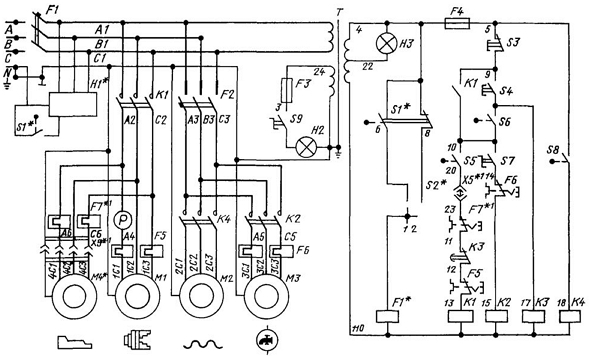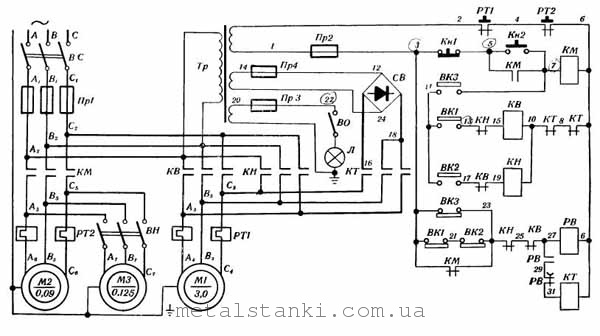Instrukciya Stanka Modelj 16b20p 061 Average ratng: 4,4/5 1455 reviews
In, Yoram Hazony argues on behalf of what he terms the “Protestant construction of the West.” This affirms “two principles, both of them having their origins in the Old Testament.” The first principle is “the moral minimum required for legitimate government.” Here Hazony means “ten precepts” (more conventionally, if less accurately, known as the Ten Commandments). Leading Protestant reformers such as Martin Luther and John Calvin recognized the Ten Commandments as natural law, revealed to and accessible to all people. The second principle is “the right of national self-determination.” This meant, beyond the moral floor required by the first principle, “it was not expected that all nations would become as one in their thoughts, laws, or way of life.” He adds, [T]he second principle – permitting each nation to determine for itself what constitutes a legitimate ruler, a legitimate church, and appropriate laws and liberties – brought the Christian world directly into dialogue with the biblical vision of an order of independent nations. And it was this principle that set the world free. Professor Rogers makes a very insightful point: Hazony’s is a false distinction between Roman Catholicism, which Hazony says had a universalist/imperialist political history, vs. The nationalist consequences of Reformation history. The objectives of both were in fact universalist insofar as their Christian mission was to evangelize.
Yet Roman Catholicism, under the banner of the Holy Roman Empire, particularly fighting the defensive wars of the crusades, became politically and militarily imperialistic, not just evangelically so, a fate spared Protestantism by virtue of the later political circumstances and much narrower range of its mission. I think the distinction Rogers makes is interesting and historically accurate but of no significant consequence, ultimately, to Hazony’s thesis. I also think Hazony had been much better off not to cite Roman Catholicism as an example of imperialism (like Communism and Fascism) advanced through military and political aggression and conquest but rather as an example of spiritual universalism that, but for the defensive wars of the Crusades, did not seek to advance its mission through military and political aggression and conquest. James– I do not know the book, but I know you to be a careful and thoughtful scholar.
Assuming you have characterized the argument accurately, it is defective history and, as you demonstrate above, defective theology. Human behavior, especially on complex phenomena like nationalism and state formation, is almost never attributable to single causes.–yet another reason to treat this argument with skepticism. So why are you bothering with it at all? If this question really motivates you, why not produce your own understanding of the origin of nation states (one of the great historical questions, after all), and argue FOR that, rather than AGAINST something that seems, at least as you describe it here, simplistic and erroneous?
When time permits, I will post the more important thinkers from my working bibliography on this question, at least as I see it now. An exercise like that, it seems to me–a partial accounting of the broader range of explanation that thoughtful scholars have offered on this question–further demonstrates, if that is necessary, the intellectual poverty of the argument you sketch above.
The curtain remains on the belt rakes at all times. Switching between raking and tedding is done using the bolt. Support wheel for simple coupling of the machine to the tractor and manoeuvring of the machine during storage. Godina XVIII – Broj 10. Godine SARAJEVO ISSN 1512-7079 VLADA FEDERACIJE BOSNE I HERCEGOVINE 211 Na osnovu ~lana 19.
Best wishes, Kevin. I too was at first surprised by that usage. But upon further reading I began to understand that it was an intentional choice and it worked to shift the tone of the argument. It shifts from unquestioning acceptance of the progressives’ intentional ambiguity of “globalist” to a more precise and, yes, pejorative political identifier of “imperialist.” Is there an accurate political term you would substitute for imperialism that is not ambiguous about the “Top Down” nature of any single whole world government? The Genghis Khan model of governance? From my individual rights and soft libertarian leanings I find the term “Imperialist” quite accurate for any single government ambitious enough and powerful enough to actually rule the entire world and all its people.


I especially like Mr. Elektronnij atlas dorog primorskogo kraya. Devine’s admonition that we must not dismiss Hazony’s book (or his other work.) He is a very thoughtful scholar of Western religious and political history and philosophy and an insightful thinker as to how that all bears on contemporary political phenomena. Some of the history of “The Virtue of Nationalism” as to the significant forces impelling the rise of nationalism and nation states is understandably brief and simplistic, deliberately provocative and arguably questionable. Yet, the book is an important work because it provokes a serious challenge to the undesirable but ascending force of internationalism and provides an intellectual grounds for political conservatives to mount that challenge. Thank you–this is helpful. Still, if we write history solely for the sake of legitimating positions to which we are already committed, that is to say with a teleology, we almost always wind up writing bad history.

